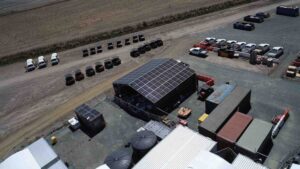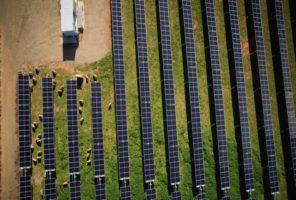Singapore’s national water agency will work with Norwegian technical consultancy DNV GL to develop what will be one of the largest single floting solar systems in the world – a 50MW project planned for the Tengeh Reservoir in the island’s north-west.
DNV GL announced on Thursday that it had been contracted by Singapore’s Public Utilities Board (PUB) as technical advisor for the 50MW floating solar PV project.
PUB will conduct a tender for development of the project, billed as Southeast Asia’s largest public tender for floating PV and, according to DNV GL, use “a pioneering business model consisting of both conventional and renewable energy components.”
DNV GL will work with PUB throughout the tender preparation, bidding, design, construction, and operational phases of the project.
“The scale of the Tengeh Reservoir project makes it an important milestone in the development of this rapidly emerging technology,” said Nicolas Renon, Executive Vice President Asia Pacific, at DNV GL – Energy.
“We are looking forward to bringing our expertise across various forms of energy generation to this project and support the Singaporean government in meeting its ambitious solar generation targets.”
The Tengeh Reservoir floating solar PV project is billed as being completed and operational by 2021 and will be used to power the reservoir’s water treatment facilities, eliminating 28,000 tonnes of carbon dioxide emissions annually in the process.
An island city-state off the southern coast of Malaysia, Singapore is one of the world’s global financial centres, but has limited renewable options and resources. According to Singapore’s Energy Market Authority (EMA), the country has “no hydro resources, our wind speeds and mean tidal range are low, and geothermal energy is not economically viable.”
Unsurprisingly, then, solar energy “remains the most viable renewable energy option for Singapore” as the country is located helpfully in the tropical sun belt and enjoys an average annual solar irradiance of 1,580 kWh/m2/year.
Nevertheless, Singapore is making significant strides towards achieving its Paris Agreement pledges, which include a pledge to reducing emissions by 16% by 2020 and reducing its Emissions Intensity by 36% from 2005 levels by 2030, and to stabilise their emissions with the aim of peaking around the 2030 mark. Singapore also hosts the Singapore International Energy Week, which will mark its 12th edition later this year and help meet the country’s commitment to becoming a global leader among energy companies.
Singapore’s PUB launched a public tender to seek proposals to design, build, own, and run the 50 MW floating solar PV project at Tengeh Reservoir on June 6. At the same time, PUB also confirmed it is in the process of implementing two smaller 1.5 MW floating solar PV systems on the Bedok and Lower Seletar reservoirs.
The tender for these two smaller projects has already closed and will be awarded in the third quarter for operations to begin in early 2020. PUB is also deploying rooftop solar PV installations across their water infrastructure and reservoirs in order to reduce their carbon footprint.
When the three floating solar projects are completed, PUB will boast solar capacity of around 57MW, and will add a further 5MW in 2025 when rooftop solar is installed atop the Tuas Water Reclamation Plant.
The first utility-scale public tender for floating PV in Southeast Asia, the Tengeh Reservoir project has already completed preliminary design, independent energy assessment, technology benchmarking, and business model studies, and will provide tender support and proposal evaluation during the bidding phase.










